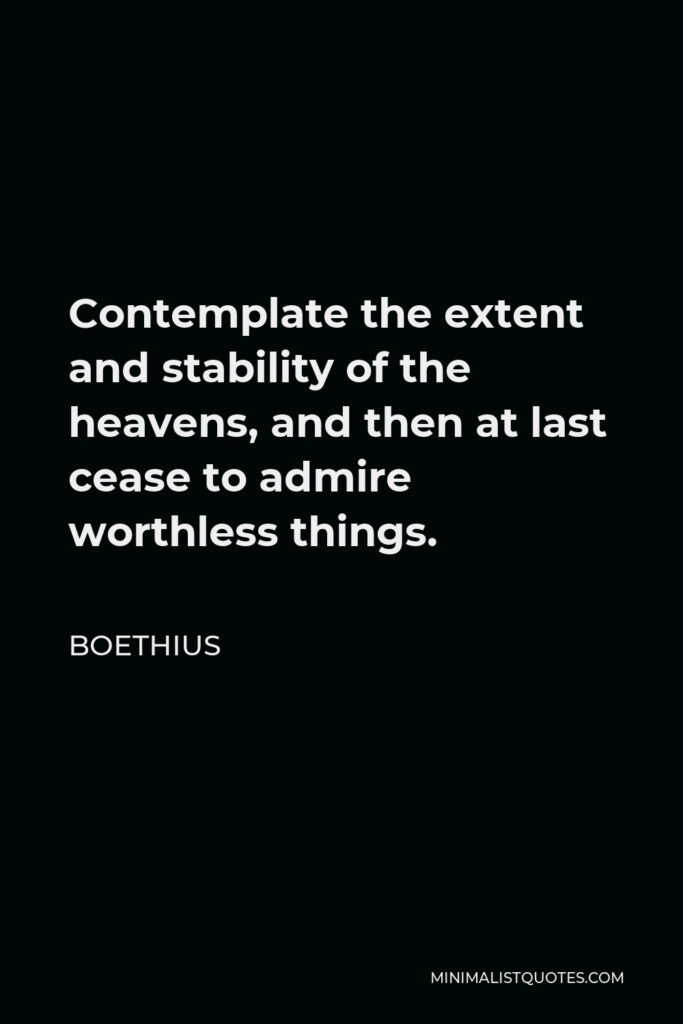Nothing is miserable but what is thought so, and contrariwise, every estate is happy if he that bears it be content.
BOETHIUSWhose souls, albeit in a cloudy memory, yet seek back their good, but, like drunk men, know not the road home.
More Boethius Quotes
-







-







And no renown can render you well-known: For if you think that fame can lengthen life By mortal famousness immortalized, The day will come that takes your fame as well, And there a second death for you awaits.
BOETHIUS -







As far as possible, join faith to reason.
BOETHIUS -







Whose happiness is so firmly established that he has no quarrel from any side with his estate of life?
BOETHIUS -







He who is virtuous is wise; and he who is wise is good; and he who is good is happy.
BOETHIUS -







One’s virtue is all that one truly has, because it is not imperiled by the vicissitudes of fortune.
BOETHIUS -







So nothing is ever good or bad unless you think it so, and vice versa. All luck is good luck to the man who bears it with equanimity.
BOETHIUS -







All fortune is good fortune; for it either rewards, disciplines, amends, or punishes, and so is either useful or just.
BOETHIUS -







If there is a God, whence proceed so many evils? If there is no God, whence cometh any good?
BOETHIUS -







As far as possible, join faith to reason.
BOETHIUS -







The completely simultaneous and perfect possession of unlimited life at a single moment.
BOETHIUS -







No man can ever be secure until he has been forsaken by Fortune.
BOETHIUS -







He who has calmly reconciled his life to fate … can look fortune in the face.
BOETHIUS -







Contemplate the extent and stability of the heavens, and then at last cease to admire worthless things.
BOETHIUS -







A man content to go to heaven alone will never go to heaven.
BOETHIUS -







Whose souls, albeit in a cloudy memory, yet seek back their good, but, like drunk men, know not the road home.
BOETHIUS








